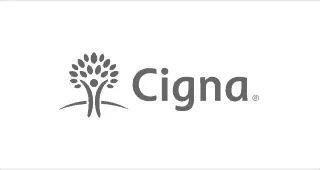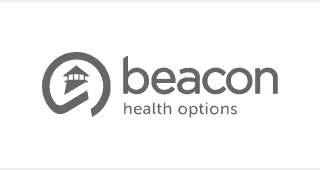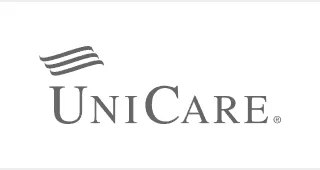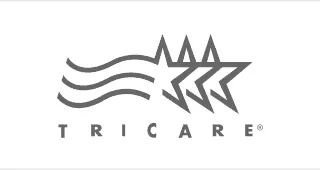Family Therapy
Through family therapy, families can learn to communicate more effectively, understand each other’s perspectives and work together to support the individual in recovery. Family therapy can help spouses and children of those struggling with addiction learn how to cope with the situation and rebuild relationships.
Family counseling is essential during the time someone is struggling with addiction in rehabilitation. Achieve Wellness offers many addiction treatment services like outpatient treatment, PHP, and IOP. We also offer family counseling as part of our comprehensive approach to addiction treatment.
What is Family Counseling for Substance Abuse?
Family therapy is a form of counseling that involves all members of a family unit. The goal of family counseling for substance abuse is to improve communication and relationships within the family.
Family therapy sessions are typically led by a licensed therapist. All members of the family participate in the sessions together. The therapist will help the family members communicate more effectively, understand each other’s perspectives, and work together to support the individual in recovery.
What are Different Techniques Used in Family Therapy?
There are many different techniques used in family therapy. The therapist may use family sculpting, which is a way for family members to express their feelings about the addicted family member through clay modeling. The therapist may also employ conflict resolution techniques, such as brainstorming and role-playing, to help the family members resolve disputes in a healthy way. Therapists may also ask each family member to keep a journal as a record of their own personal progress during their journey through therapy.
When it comes to models of family therapy there are four specific approaches. Each one directs their focus to identify specific issues and work towards solutions. These four family therapy approaches include Bowenian, Structural, Systemic, and Strategic.
Bowenian Approach
This form of family therapy for addiction also known as family systems therapy is based on the idea that family members are interconnected and that one member’s behavior can impact the entire family dynamic. This type of family therapy focuses on changing negative patterns of behavior within the family in order to promote healing and growth.
Structural Approach
Structural family therapy, on the other hand, views families as having a set structure or hierarchy. This type of family therapy works to change the family’s overall structure by changing the way family members interact with one another.
Systemic Approach
Systemic family therapy takes a more holistic approach, viewing the family as a system made up of interdependent parts. This type of therapy looks at how each individual member contributes to the family’s overall functioning and seeks to change negative patterns of behavior by changing the way family members interact with one another.
Strategic Approach
Strategic family therapy focuses on the here and now, rather than on family history or past events. This type of therapy works to identify and change the negative patterns of behavior that are causing problems within the family.
What are the Benefits of Family Therapy?
There are many benefits to family therapy, including:
- Improved communication within the family
- Stronger family relationships
- Greater understanding of each other’s perspectives
- Better coping skills for dealing with addiction
- Improved ability to support the family member struggling with addiction
- Help families understand addiction and its causes
- Resolve disputes between family members
Family therapy can be an effective treatment for addiction because it addresses the problem from a family perspective. In family therapy, families learn how to support one another and how to cope with addiction. Family therapy also teaches family members how to communicate effectively and how to resolve conflict. Family members gain more perspective throughout the counseling process as well as self-awareness. This way they are able to re-evaluate their own emotions and focus on their own actions to work towards a common goal for the family.
How Does Family Therapy Work with Addiction Treatment?
Family therapy is often used in conjunction with other forms of addiction treatment, such as individual counseling, group therapy, and 12-step programs. family counseling can help family members to understand the addiction and how it has affected their lives. family therapy can also help family members learn new skills for coping with the addiction.
When someone is struggling with addiction, it impacts the whole family. Addiction can cause financial problems, communication problems, and emotional problems. family counseling can help families to heal the wounds caused by addiction and to rebuild relationships.
How Does Addiction Impact the Whole Family?
Addiction can cause financial problems, communication problems, and emotional problems. Families may also unknowingly cause damage to a person who is suffering from addiction by enabling their addiction. There are a variety of issues that can occur within a family unit when someone suffers from addiction.
Family therapy for addiction takes place in a safe environment. Everyone within the family can work through difficult emotions and discuss the issues that have occurred as a result of addiction. Family addiction counseling can help families to heal the wounds caused by addiction and to rebuild relationships.
Is Addiction a Family Disease?
When someone is dealing with addiction, it doesn’t just impact them. It impacts their whole family. Their spouse, their children, their parents, their grandparents, and their siblings. Addiction is a family disease because it changes the way that families interact and communicate with one another.
While research is somewhat mixed, some studies have suggested that genetics can cause someone to have a predisposition to addiction. It can also be a behavior that is learned over time as a result of trauma, stress, or mental illness. Or it can be learned from other loved ones who engage in substance abuse behavior.
Addiction affects the entire family, not just the addicted individual. It’s important for family members to understand that addiction is a serious disease that requires professional help.
Why is Therapy Helpful for Spouses of Addiction?
Addiction can cause significant marital strain. Issues like infidelity, financial problems, and even domestic violence can occur. Spouses of those dealing with addiction often feel isolated, alone, and helpless. Through family therapy, spouses can address the issues that occurred and find ways to cope and work with their addicted spouses.
Family counseling can help spouses to understand the addiction and how it has affected their lives. Family therapy can also help spouses learn new skills for coping with the addiction.
Why is Therapy Helpful for Children of Addiction?
Children of those struggling with addiction often feel confused, scared, and angry. Family counseling can help children to understand the addiction and how it has affected their lives. Family therapy can address issues related to typical family functioning as they relate to addiction.
Typically if a parent is suffering from addiction, children find themselves having to parent themselves, or even their own parent(s). Family therapy for addiction aims to restore the balance between child and parent.
How Long Does Family Therapy Last?
Family counseling for substance abuse is not a “quick fix”, but rather a process that takes time. The length of family therapy will depend on the severity of the addiction, as well as other factors such as family history and dynamics.
Family counseling is important for addiction treatment because addiction does not just affect the individual struggling with substances – it also affects their family members. Therefore the length of time that may be necessary will vary greatly. It’s not uncommon for families to attend therapy long after the individual has recovered from addiction. This is because there is typically a lot of shame and anger that still persists long afterward.
Addiction often leads to family conflict, which can be resolved through family counseling. Through family counseling, families can learn how to communicate more effectively, set boundaries, and support each other through difficult times.
The safest way to deal with any kind of anxiety is to see a professional or a specialist about it. Treatment or therapy could be suggested that would bring the condition to the point where it is manageable and negligible to some extent.
People who either could not see a specialist for some reason, or prefer not to, often turn to what they think is the next best thing: substance dependence. Some people turn to medications or drugs, others prefer to use alcohol to dull the sense of fear, dread, or whatever intense emotion is debilitating to them when in the grip of anxiety.
This decision to turn to substance dependence is not only useless against anxiety, but it also creates another, potentially greater problem than all the troubles anxiety could do to a person: addiction.
Learn More About Addiction Counseling for Families at Achieve Wellness Recovery!
Achieve Wellness is a family addiction counseling and addiction treatment center that offers family therapy as part of our comprehensive treatment program. Our family counselors work with the whole family to help them understand addiction, its causes, and its effects. We also help family members learn how to support their loved ones in recovery.
If you or someone you love is struggling with addiction, we can help. Contact us today to learn more about our family counseling services and how we can help you and your family heal from addiction.
References:
https://nida.nih.gov/publications/drugfacts/genetics-epigenetics-addiction
We work with most insurance companies. Please note we are not affiliated with or endorsed by insurance companies.
No Medicaid Accepted.


















